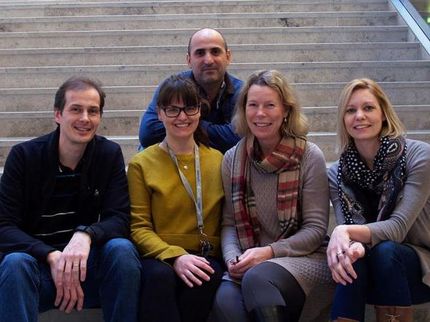Safe Food - even in case of damage caused by a bio or agro terrorist attack
The BfR receives research funding to ensure the safety of supply chains
Advertisement
The quality and safety of food and feed is governed by laws and monitored through the strict Food Hygiene Regulations. "To ensure continued maximum safety of the food supply chain in future, any potential new risks must be taken into account", says Professor Dr. Dr. Andreas Hensel, President of the Federal Institute for Risk Assessment (BfR). The BfR coordinates the joint project for ensuring the safety of the food and feed supply chain in case of damage caused by bio or agro terrorist (BAT) attacks. Bearing the acronym SiLeBAT, this project is sponsored by the Federal Ministry of Education and Research. The aim of SiLeBAT is to develop innovative solutions for the prevention and limitation of damage to ensure continued food supplies even in case of damage through a bio or agro terrorist attack. Preventive measures are based on scenarios involving both direct contamination of food and ind irect contamination through deliberately infected domestic cattle or feed.
Bioterrorism is a form of terrorism in which microorganisms or their toxins are used for attacks against people or for deliberate contamination. Agroterrorism is defined as the deliberate spread of disease in plants and animals. Food and supply facilities can be the target of deliberate contamination through bioterrorism agents.
The SiLeBAT project develops concrete solution approaches to ensure continued food supply to the population in case of bio or agro terrorism (BAT) attacks. The Federal Institute of Education and Research sponsors the project by providing approximately Euro 7 million. Within the BfR, the Department of Biological Safety is responsible for the coordination and implementation of the project. Apart from the BfR, the following institutions are involved in the project: Federal Office of Consumer Protection and Food Safety (BVL), Friedrich Löffler Institute (FLI), Johann Heinrich von Thünen Institute (vTI), Max Rubner Institute (MRI), Institute for Animal Nutrition of the Free University of Berlin, Institute of Animal Sciences of the University of Bonn, Analytik Jena AG, BALVI GmbH (IT company with a focus on food safety). Supported by associated partners from the federal states and associations as well as commercial enterprises, the project partners jointly develop solu tions for the prevention and early recognition as well as limitation of damage caused by bio and agro terrorism attacks.
All those involved in the project agree that in case of damage through bio or agro terrorism, effective and coordinated action is possible only if comprehensive and valid expert information is available quickly. For this reason, one key area of activities is the systematic collection and development of relevant expert information in the areas of epidemiology, the ability to survive of harmful microorganisms and the durability of biotoxins in food matrices as well as information on the availability and effectiveness of detection methods, sample preparation procedures and decontamination processes. The idea is for this expert information to then be used to make suitable recommendations for countermeasures, and those recommendations will also be made accessible online. In addition, computer-based processes for assessing the risks and available response options are developed. In areas where the availability of expert information is patchy or nonexistent altogether, experimenta l work is conducted to supplement the missing information. In addition, the goal is to develop an IT solution which in case of need will give those involved access to all resources developed and released as part of the project via a specially designed, secured and extendable information platform. For the purpose of practical application, an example of a practice and training programme is devised and implemented.























































